Supports for culturally and linguistically diverse people
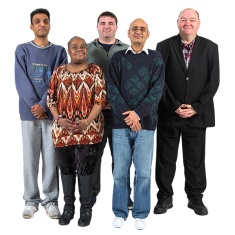
Culturally and linguistically diverse is used to describe the wide range of cultures, religions, and languages that people in Australia identify with.
Culturally and linguistically diverse is known as CALD for short.

For more information about CALD people go to https://www.idmhconnect.health/culturally-and-linguistically/ER
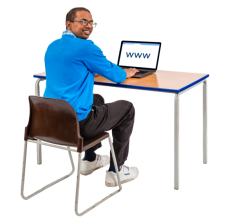
Below are services and supports for CALD people.

There is a lot of information.
Some words can be hard to understand.
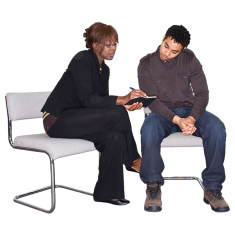
You can ask someone to read this information with you.

The Multicultural Disability Advocacy Association provides advocacy services for people with disability from CALD communities.
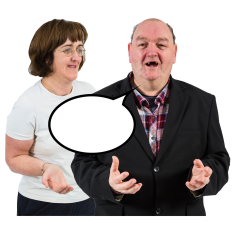
Advocacy is having your voice heard so your rights and needs are met.
You can have needs in many areas of your life.
Rights are rules about how everybody should be treated fairly.
A right is something everyone has.
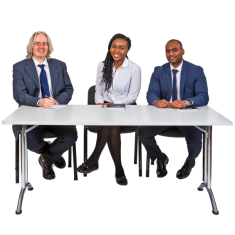
The Multicultural Disability Advocacy Association also supports people with NDIS appeals and reviews.
An appeal is when you ask someone to have another meeting.

For more information about the Multicultural Disability Advocacy Association go to http://mdaa.org.au/services/
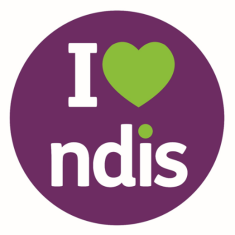
The Ethnic Community Services Co-operative provides
- NDIS services and information

- Advocacy
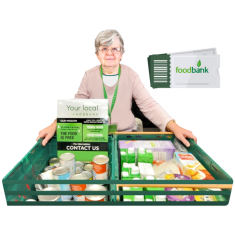
- Volunteer projects for people with disability
When you volunteer you give your time to help someone.
You do not get paid for your help.

They also provide
- Support for people looking for work experience and paid work

For more information about the Ethnic Community Services Co-operative go to https://ecsc.org.au/
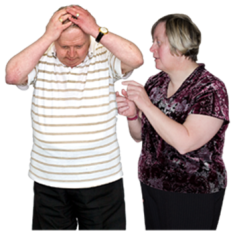
Open Minds has support services for people from CALD communities with mental health problems.
A mental health problem is when your feelings start to worry you.
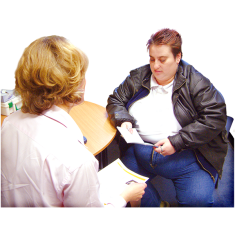
For more information about Open Minds go to https://www.openminds.org.au/
services/supporting-culturally-and-linguistically-diverse-people-cald
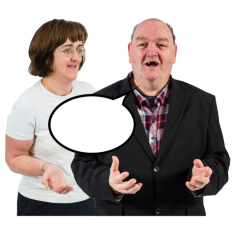
Action on Disability within Ethnic Communities has services and information including
- Advocacy support

- Videos about the NDIS in different languages
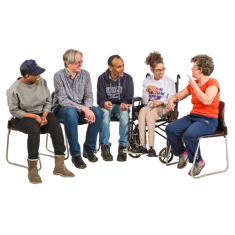
- Social support groups
A support group is a small group of people you meet with to communicate about mental health.
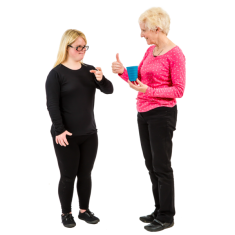
To communicate is how you understand and share your feelings or information.

For more information about Action on Disability within Ethnic Communities go to https://adec.org.au/

Kin provides advocacy support for people with disability from CALD communities.
For more information about Kin go to https://kinadvocacy.org.au/

The Federation of Ethnic Communities Councils of Australia has a program that supports people from CALD backgrounds to access the NDIS.
For more information about the program go to https://fecca.org.au/communityconnectors/
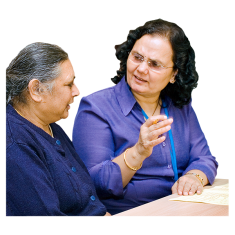
An interpreter is a person who changes words from your language to a language someone else understands.

Translating and Interpreting Service provide onsite and on phone interpreting.
To contact the service
- Call 131 450
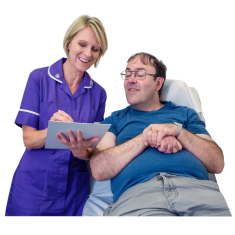
NSW Health Care Interpreting Services have free and confidential interpreters.
These interpreter help you if you go to hospital for your care.

Confidentiality means that information about you must not be shared with others unless you say that it is OK to share.

For more information about the NSW Health Care Interpreting Services go to https://www.health.nsw.gov.au/
multicultural/Pages/Health-Care-Interpreting-and-Translating-Services.aspx

Lifeline Australia provides crisis support in different languages.
You can ask to speak to someone in your language.
To contact Lifeline
- Call 13 11 14
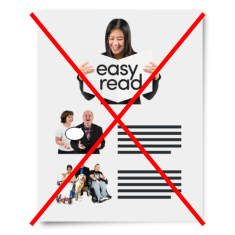
Below is a list of websites with information in different languages.
The information from the websites below is not in Easy Read but can still be helpful.
If you want you can ask someone to support you to read them.

Embrace Multicultural Mental Health provides mental health information in different languages.
For more information go to https://embracementalhealth.org.au/
Amparo Advocacy Inc has information on the rights of people with an NDIS plan.
To read the information go to https://www.amparo.org.au/ndis-and-participants-rights/

Your NDIS plan says what supports you need.

The Cerebral Palsy Alliance has some information translated into different languages.
To read the information go to
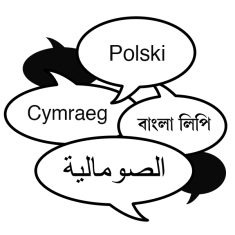
Centrelink information about the Disability Support Pension has been translated into different languages.
To read the information go to https://www.servicesaustralia.gov.au/disability-support-pension-translation
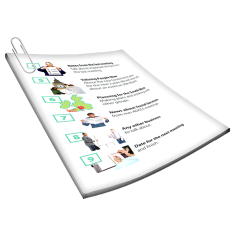
UnitingSA has factsheets to help people from CALD communities to use the NDIS.
To read the factsheets go to https://unitingsa.com.au/community-services/ndis-disability-support/

The Transcultural Mental Health Centre has mental health information in different languages.
To read the information go to https://www.dhi.health.nsw.gov.au/transcultural-mental-health-centre-tmhc/resources/in-your-language
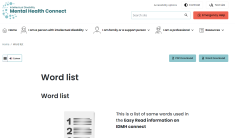
There are some tricky words on this Easy Read page.
For more information about these words go to